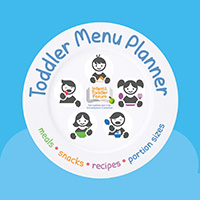
Use our Toddler Meal planning tool to ensure your 1-4 years old receives a balanced diet every day.
Find out more >
Use our toddler food tracker to check that your 1-4 year olds are getting a good balance of foods and activity
Find out more >
This educational programme for frontline professionals contains a range of practical resources on infant feeding.
Find out more >The childhood obesity challenge – Prevention is action
ITF Study Day – Wednesday 9th November 2016
Venue: Chelsea Football Club
Endorsed by the BDA, CACHE and RCPCH
Endorsed by the BDA for CPD – BDA endorsement applies only to the educational content of the learning activity
RCPCH has approved this activity for CPD in accordance with the current RCPCH CPD Guidelines
Study Day 2016
With maternal and child obesity on the rise, the UK is facing a preventable epidemic of obesity and diet-related ill-health. Prevention is key to protect future generations. This new, accredited Study Day, hosted by expert speakers provided vital support by engaging practitioners with practical resources to help change behaviours and encourage healthy eating in toddlers.
Soundbites
Speakers and attendees discuss the main points and share the key learnings in the series of videos available here. Scroll down to see the agenda, watch the video of some sessions and download the slides presented during the Study Day.
The Obesity Strategy: main changes in policies and what practitioners can do to make a difference
Cllr Jonathan McShane
Member, LGA Community Wellbeing Board
Practical tools for healthcare professionals to fight childhood obesity
Judy More
Paediatric Dietitian & Nutritionist specialising in children’s nutrition, Honorary Lecturer Plymouth University
How to start healthy conversations with parents
Dr Wendy Lawrence
Associate Professor of Health Psychology, Medical Research Council Lifecourse Epidemiology Unit, University of Southampton
Most common questions from healthcare professionals about healthy pregnancy
Dr Rosan Meyer
Paediatric Dietitian, Honorary Senior Lecturer, Imperial College, London
How parents can encourage healthy eating
Dr Gillian Harris
Honorary Senior Lecturer in Applied Developmental Psychology, School of Psychology, University of Birmingham, Consultant Paediatric Clinical Psychologist, Birmingham Food Refusal Service
Study Day reactions: what are the key things individuals can do to combat the obesity crisis?
Dr. Orlena Kerek
Paediatrician, author and mother
Study Day reactions: why is childhood obesity such a challenge for healthcare professionals?
Kathy Cowbrough
Registered Dietitian and Public Health Nutritionist
ITF Study Day Highlights
KEYNOTE: The Childhood Obesity Challenge – National Plan, Local Action
Cllr Jonathan McShane
Member, LGA Community Wellbeing Board
Childhood obesity starts in the womb
The UK has one of the highest obesity rates in Europe. Research suggest that babies who are born to obese mothers or mothers who develop gestational diabetes are more likely to become obese themselves.
The research highlights how sensitive the baby is to the environment experienced in the womb and how lifelong effects may be initiated before birth. With obesity and gestational diabetes becoming more and more common, it’s clear we need to take action earlier to improve the health of the next generation.
Prof. Lucilla Poston
Tommy’s Professor of Maternal and Fetal Health and Head of Division of Women’s Health, King’s College London
Feeding young children: How much is on the plate is just as important as what: Key findings from the Gemini Cohort study
Gemini is the biggest study of the genetic and environmental effects on appetite and growth ever to be undertaken in the UK with the aim of finding out how basic biology and the world around us work together to make us who we are.
Dr Hayley Syrad
Health Behaviour Research Centre, UCL
Workshop 1 – Ten Steps for Healthy Toddlers
Practical advice on what foods to offer, behaviours to encourage and portion sizes for 1-4 year olds.
Judy More
Paediatric Dietitian & Nutritionist specialising in children’s nutrition, Honorary Lecturer Plymouth University
Workshop 3 – Ten Steps for a Healthy Pregnancy
Practical advice to help all women achieve a healthy pregnancy [myth busting tips]
Dr Rosan Meyer
Paediatric Dietitian, Honorary Senior Lecturer, Imperial College, London
Full Study Day Agenda
Chair’s welcome
Britain is facing a preventable epidemic of obesity and diet-related ill-health, with a generation set to die before their parents. With one in five reception aged children either overweight or obese and the rising rate of maternal obesity putting more and more pregnancies at-risk, health agendas need to focus on prevention – supporting practitioners, parents and carers with effective tools to help change behaviour now.
Dr Atul Singhal
Professor of Paediatric Nutrition, Institute of Child Health, UCL
KEYNOTE: The Childhood Obesity Challenge – National Plan, Local Action
Cllr Jonathan McShane
Member, LGA Community Wellbeing Board
Childhood obesity starts in the womb
The UK has one of the highest obesity rates in Europe. Research suggest that babies who are born to obese mothers or mothers who develop gestational diabetes are more likely to become obese themselves.
The research highlights how sensitive the baby is to the environment experienced in the womb and how lifelong effects may be initiated before birth. With obesity and gestational diabetes becoming more and more common, it’s clear we need to take action earlier to improve the health of the next generation.
Prof. Lucilla Poston
Tommy’s Professor of Maternal and Fetal Health and Head of Division of Women’s Health, King’s College London
Feeding young children: How much is on the plate is just as important as what: Key findings from the Gemini Cohort study
Gemini is the biggest study of the genetic and environmental effects on appetite and growth ever to be undertaken in the UK with the aim of finding out how basic biology and the world around us work together to make us who we are.
Dr Hayley Syrad
Health Behaviour Research Centre, UCL
Workshops
Delegates can choose two of the four workshops to attend. Spaces are limited and will be allocated on a first come first served basis.
Workshop 1 – Ten Steps for Healthy Toddlers
Practical advice on what foods to offer, behaviours to encourage and portion sizes for 1-4 year olds.
Judy More
Paediatric Dietitian & Nutritionist specialising in children’s nutrition, Honorary Lecturer Plymouth University
Workshop 2 – How to engage families to make healthy choices: “Healthy Conversation Skills” to support behaviour change
An introduction to invaluable, practical skills to support clients to make behaviour change for a healthier lifestyle.
Dr Wendy Lawrence
Associate Professor of Health Psychology, Medical Research Council Lifecourse Epidemiology Unit, University of Southampton
Workshop 3 – Ten Steps for a Healthy Pregnancy
Practical advice to help all women achieve a healthy pregnancy [myth busting tips]
Dr Rosan Meyer
Paediatric Dietitian, Honorary Senior Lecturer, Imperial College, London
Workshop 4 – Understanding the psychology behind feeding!
While most toddlers naturally regulate their energy intake through their food and drinks to meet their needs for growth and development, some toddlers eat more than they need and some are also more ‘food responsive’. Different strategies may be required to prevent weight gain in these children.
Dr Gillian Harris
Honorary Senior Lecturer in Applied Developmental Psychology, School of Psychology, University of Birmingham, Consultant Paediatric Clinical Psychologist, Birmingham Food Refusal Service


